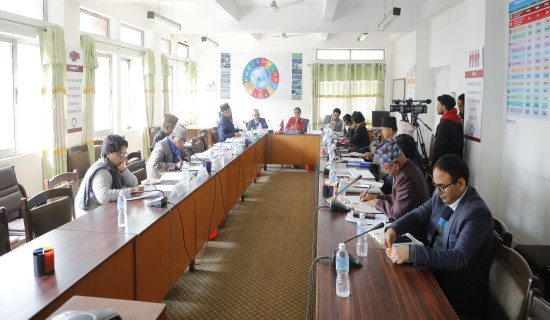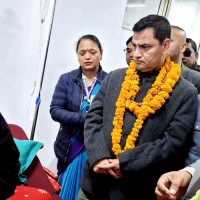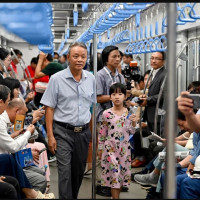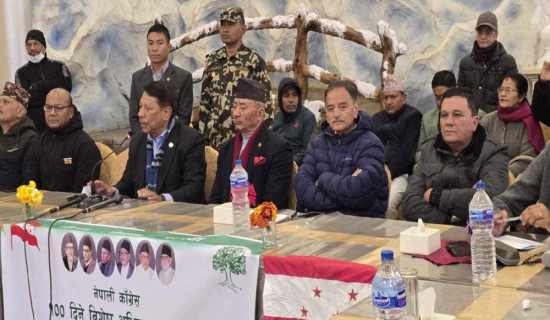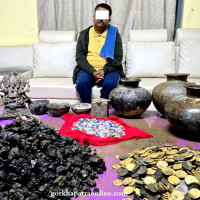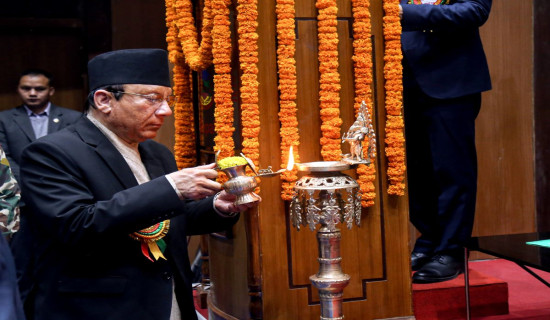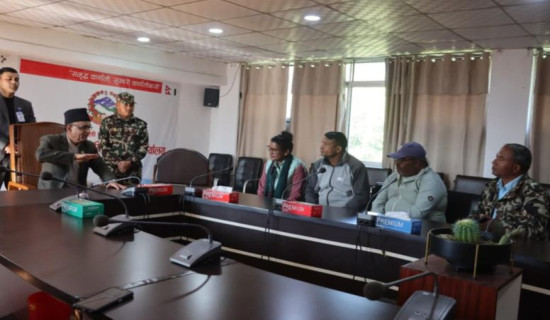- Tuesday, 24 December 2024
Georgia prepares for election which could determine its future in Europe
Javakheti, Georgia, Oct. 26: When Vahan Agayan goes to the polling station in Georgia’s parliamentary election Saturday, he says he and his wife will vote as directed to by officials of the ruling Georgian Dream party.
Agayan has a sheep farm near the border with Armenia and Turkey, 135 kilometres (83 miles) west of — and a world away from — the Georgian capital, Tbilisi. There, tens of thousands of demonstrators marched in a pre-election demonstration in favour of joining the European Union.
But in the mountainous Javakheti region, what Agayan wants most is stability.
A few years ago, wolves got into his barn and killed half the sheep, almost destroying the livelihoods of dozens of families. For Agayan, the EU is far away; what matters are the local leaders who have the power to make or break small farmers like him.
“Most people” will vote for the regional lawmaker from Georgian Dream, he said.
“An old dog is always better than a new one,” he said, suggesting a change in power could be unpredictable.
Many in this South Caucasus country of 3.7 million people believe the election will be the most important of their lives, a pivotal vote on the chance to join the European Union. It pits a coalition of opposition parties against Georgian Dream, which has governed in an increasingly authoritarian fashion since 2012.
Polls indicate around 80% of Georgians favour joining the EU, and the constitution obliges leaders to pursue membership in both the bloc and NATO.
In July, Brussels put Georgia’s bid for EU entry on hold indefinitely after Georgian Dream passed a “foreign influence law,” modelled on similar legislation in Russia. It requires media, nongovernmental organizations and other nonprofit groups to register as “pursuing the interests of a foreign power” if they receive more than 20% of their funding from abroad.
Georgian Dream argues it is needed to curb harmful foreign actors trying to destabilize the country. Many journalists and activists say its true goal is to stigmatize them and restrict debate before the election.
Georgia has long had an uneasy relationship with Russia. For most of the last century, it was ruled from Moscow until it gained independence in 1991, following the collapse of the Soviet Union.
In 2008, Georgia fought and lost a brief war with Russia, which still occupies some of its territory.
When Georgian Dream came to power in 2012, it vowed to restore civil rights and “reset” relations with Moscow. The party — set up by Bidzina Ivanishvili, a shadowy billionaire who made his fortune in Russia — also promised to pursue EU membership.
That reassured many Georgians who had seen “with their own eyes,” the threat from Russia and looked to the West to protect them, said Natia Seskuria, executive director of the Regional Institute for Security Studies in Tbilisi.
But then Georgian Dream started tracking toward Moscow: passing the foreign influence law despite mass protests, abstaining from international sanctions on Russia over its war in Ukraine, and severely curtailing LGBTQ+ rights.
However, the party’s authoritarian swing cannot be explained by influence from Moscow alone, Seskuria said. Instead, she suggested, the purpose of the foreign influence law is also “power preservation.”
She indicated Georgian Dream’s leaders watched the Kremlin use new laws to successfully crack down on critics and decided to do the same.
Some businesspeople who support Georgian Dream also have an interest in seeing the party reflected as they have profited from its tenure. At a pro-government rally in Tbilisi Wednesday, family members of people who were awarded plum jobs in railways and infrastructure were spotted in the crowd.
Georgian Dream is conducting a “hybrid war” against its citizens, said Zurab Chiaberashvili, foreign policy secretary from the United National Movement opposition party. (AP)



